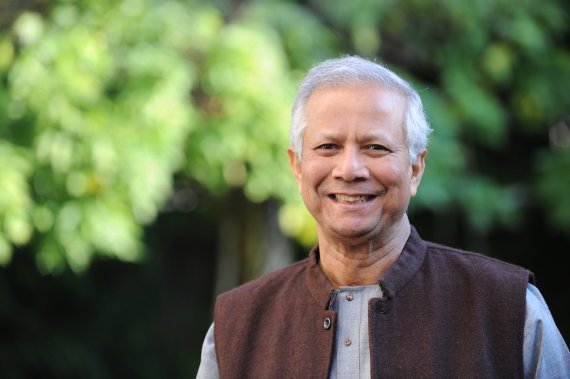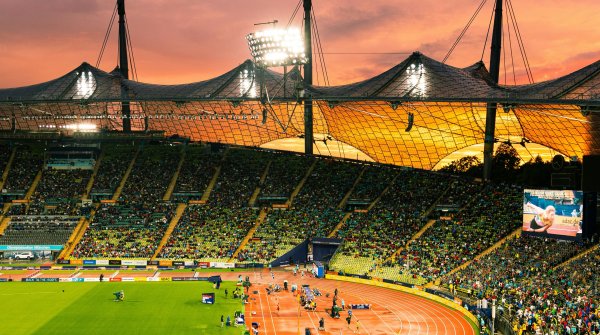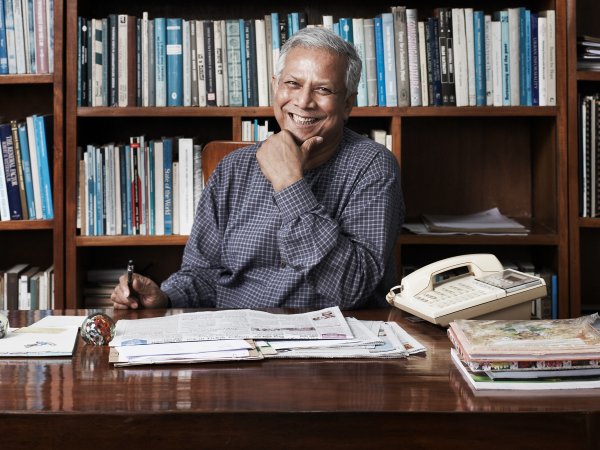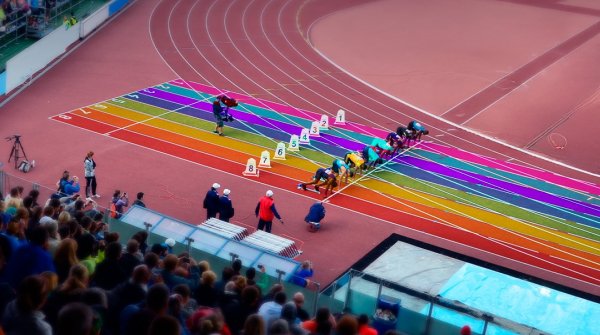Professor Muhammad Yunus founded the Grameen Bank in the 1980s, with which he provides microloans to the poorest people in Bangladesh - and thus helps them out of poverty. In 2006, he was awarded the Nobel Peace Prize for this social commitment, among other things.
As an ISPO partner, Yunus sees sport as an important force for social solidarity. "Do we really want to go back to the way the world used to be? That world was terrible. It would be suicide. There is no way back"warned the 2006 Nobel Prize winner. Instead, we need ideas for radical changes for a world without unemployment, social injustice or environmental pollution.
What can everyone do to help? According to Yunus, people and the economy are suffering in the current world situation anyway. "But then shouldn't we be suffering for the next generation and a better future, rather than for a world as it was before?"
For Yunus, sport is "a very, very essential component for a better world". How can this work? "Sport is like a pyramid"explains Yunus: the top athletes are at the top, below them are the millions of recreational athletes who look up to the world-class athletes. It is precisely this role model function that professionals and those responsible must become aware of: "When athletes say that they don't want to go back to the old world, people will listen to them. They are role models!"

Following the demonstrations and unrest in Bangladesh, the Nobel Peace Prize winner is to lead a transitional government and initiate new democratic elections. This new and important role once again demonstrates his ability to build bridges and connect people. The founder of the Yunus Sports Hub, which uses the power of sport to address social problems and strengthen communities, will now have to use his experience to unite society.
The idea that I always advocate is that the creative young people we have in the country will take the lead. They will take the country forward, and it's all about the three zeros: Zero emissions, zero concentration of wealth and zero unemployment.
Background:
Over 70 people have died in protests against head of government Sheikh Hasina in Bangladesh. Students in particular demonstrated against the government, which they hold responsible for their poor social and economic situation. After the seat of government was stormed by demonstrators, Hasina fled the country. The army announced an interim government to be headed by Nobel Prize winner Muhammad Yunus. According to student leader Nahid Islam, the country's many protesting students wanted Yunus to take on this role.
 Sports BusinessThe future of the bike industry: 6 innovative bike stores
Sports BusinessThe future of the bike industry: 6 innovative bike stores
- ISPO awards
- Mountain sports
- Bike
- Design
- Retail
- Fitness
- Health
- ISPO Job Market
- ISPO Munich
- ISPO Shanghai
- Running
- Brands
- Sustainability
- Olympia
- OutDoor
- Promotion
- Sports Business
- ISPO Textrends
- Triathlon
- Water sports
- Winter sports
- eSports
- SportsTech
- OutDoor by ISPO
- Heroes
- Transformation
- Sport Fashion
- Urban Culture
- Challenges of a CEO
- Trade fairs
- Sports
- Find the Balance
- Product reviews
- Newsletter Exclusive Area
- Magazine





